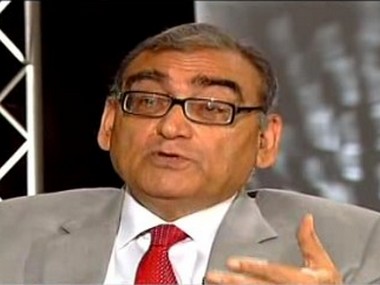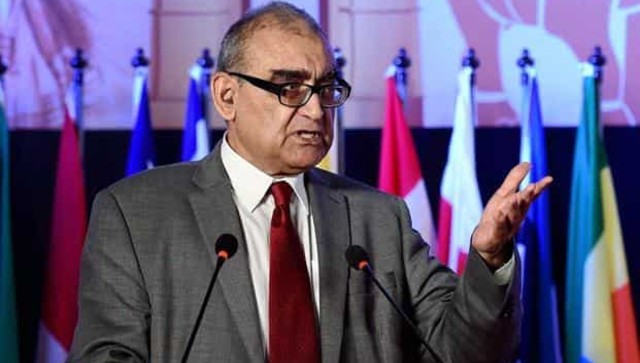“Indian media is very often playing an anti-people role. It often diverts the attention of the people from the real problems which are basically economic. (About) 80 percent people are living in horrible poverty, unemployment, facing price rise, health care (problems),” said Justice Markandey Katju, chairman of the Press Council of India, in an interview with Karan Thapar on CNN-IBN.
Of all the statements made by Katju, this one is most alarming. If the media, in their wisdom, choose to focus on certain areas more than some others, it is of no consequence to the Press Council. It is, simply, an editorial call. It is a call, which in the long run, will be judged not by Katju, but by readers and advertisers.
The very thought that Katju is asking for more powers, which might include, by his statement, the power to decide what is newsworthy and what is not, is, at best, one that will disturb media owners and journalists alike, and, at worst, frighten them.
It gets worse when Katju speaks of the quality of journalists. Describing journalists in general as having “very poor intellectual level”, Katju called for the electronic media to be brought under the purview of the council. He went on to say in a television interview that he had a very poor opinion of most people in the media. “The general rut is very low and I have a poor opinion of most media people. Frankly, I don’t think they have much knowledge of economic theory or political science or literature or philosophy. I don’t think they have studied all this,” says The Times of India quoting Katju.
So what should journalists read, Justice Katju? More importantly, why not share your opinion on the quality of judges and lawyers, your original chosen profession? Do they have enviable knowledge on areas such as economic theory, political science, literature and philosophy?
Have they even studied law? Could one describe the average judge in India as having ‘very poor intellectual level’?
What has caused Justice Katju to go so far off the rails? Many have argued, including Firstpost, that the electronic media needs to be brought under the ambit of the Press Council, which should be reconstituted to become a Media Council. However, that belief was with the understanding that the objectives and aims of the new Council would remain the same – the only change would be that new media, such as TV, would be under the umbrella.
Perhaps Justice Katju needs to revisit the establishment of the Press Council.
When the Press Council was formed, in July 1966, the objectives of the Council were defined as under:
• to help newspapers to maintain their independence; • to build up a code of conduct for newspapers and journalists in accordance with high professional standards; • to ensure on the part of newspapers and journalists the maintenance of high standards of public taste and foster a due sense of both the rights and responsibilities of citizenship; • to encourage the growth of a sense of responsibility and public service among all those engaged in the profession of journalism; • to keep under review any development likely to restrict the supply and dissemination of news of public interest and importance; • to keep under review such cases of assistance received by any newspaper or news agency in India from foreign sources, as are referred to it by the Central Government.
More details here .
On the formation, the Press Council, of which Justice Katju is now chairman, said. “Where the norms are breached and the freedom is defiled by unprofessional conduct, a way must exist to check and control it. But, control by government or official authorities may prove destructive of this freedom. Therefore, the best way is to let the peers of the profession, assisted by a few discerning laymen to regulate it through a properly structured representative impartial machinery. Hence, the Press Council.”
The body is a Council, not a dictatorship. It requires the ‘peers of the profession’ assisted by ‘discerning laymen’. It also calls for ‘impartial’ machinery.
But look what Justice Katju wants: “I want powers to stop government advertisements.” No, Justice Katju, you cannot have that. Nowhere in the conceptualisation of the remit of the Press Council was power over advertising seen.
Justice Katju’s statements and mental make-up do not suggest that he is a ‘peer of the profession’, ‘a discerning layman’ or part of any ‘impartial machinery’.
They suggest that he is making a mockery of the Council and its aims, that he wants to be the sole arbiter of what is good and bad for the citizens of the country and that he wants to leverage advertising spends as both carrot and stick.
No, Justice Katju, you cannot have any of that; none of this is in the scope of the Press Council.
Unless, of course, you change the scope of the Press Council. Watch video ….
)
)
)
)
)